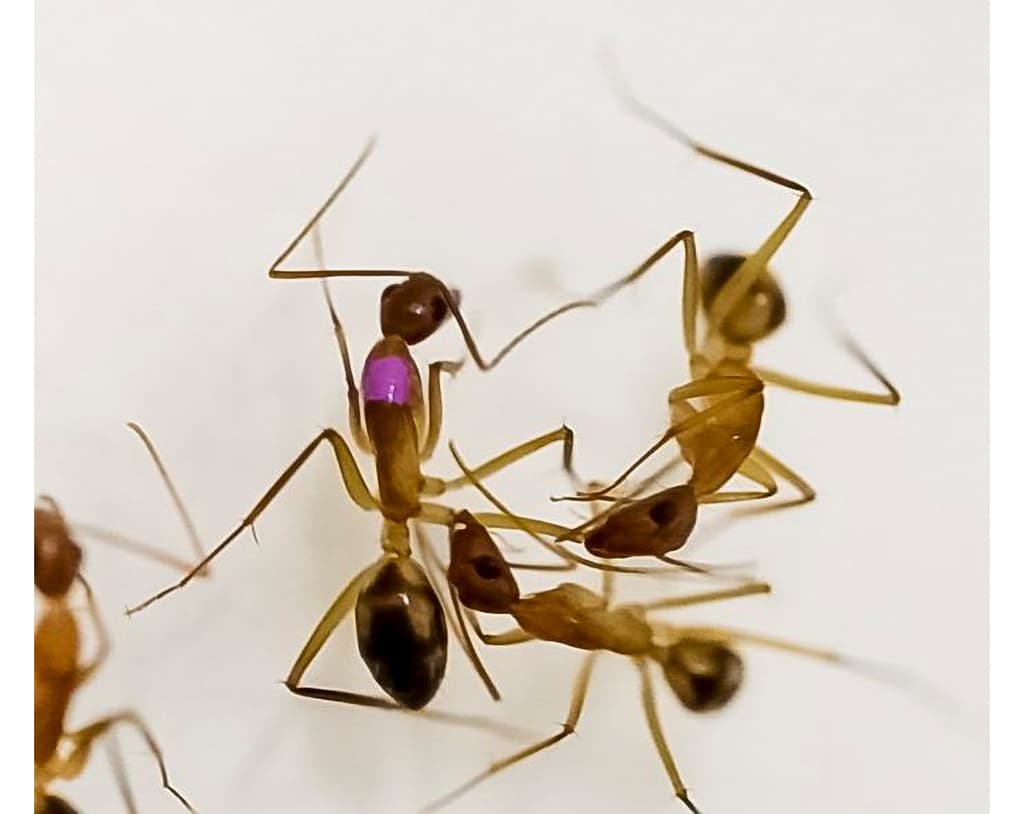We humans have believed ourselves to be alone in having advanced medical care. But new discoveries reveal that ants can be just as skilled. In fact, they sometimes perform advanced surgery.
Recently, researchers found that an ant species, the Matabele ant (Megaponera analis) from Africa, treats wounds on each other using self-produced antibiotics from special glands.
The Matabele ants are daily in battle with termites, which leads to them often getting one or more legs bitten off, resulting in severe wounds. The antibiotic saves the lives of many of them.
The new study, published in Current Biology, shows that another species, the Florida carpenter ant (Camponotus floridanus), has taken another step forward in the field of medicine. It not only cleans wounds but also amputates damaged legs.
Surgical Interventions
By individually marking ants with small color dots, researchers were able to follow their behavior in detail. The Florida carpenter ant lives in colonies with over 8,000 individuals and is known for its aggressiveness and painful bites.
Unlike the Matabele ant, it lacks the ability to produce antibiotics. The ants therefore have to settle for cleaning wounds with their mouths, but if the injured comrade is in danger of dying, they soon resort to surgical interventions. They seem to be fully capable of making a thorough assessment of the extent of the injury and how to best treat it.
The action was entirely dependent on whether the injury occurred on a thigh bone or a shinbone. Damaged thigh bones were always amputated by the nurse ant slowly biting them off. The operation can take as long as 40 minutes to perform, but was almost always successful – over 90 percent of patients survived, while ants that for various reasons did not receive treatment had a survival rate of only 40 percent.
Lifesaving Effort
If the injury occurred on a shinbone, the ants, on the other hand, refrained from amputation and settled for cleaning the wound. The reason seems to be that shinbones become infected more quickly. Amputating them takes too long and would therefore be pointless. But cleaning them still yields good results – survival increased from 15 to 75 percent.
That small insects like ants have the ability to perform medical diagnoses, assess what type of treatment is required, and then perform surgical interventions will surely surprise many.
The only medical system that can measure up to theirs is our own, says the study's leader, Erik Frank, behavioral ecologist at the University of Würzburg in Germany.
Ants (Formicidae) are a family among the social insects. They are most closely related to wasps. Approximately 14,000 species are known, but the actual number is around 22,000 species. They are found on all continents except Antarctica. They live in colonies that can comprise several million individuals. Almost all are females that are very closely related to each other, often sisters. They are in most cases sterile and are divided into workers and soldiers.
Source: University of Würzburg






